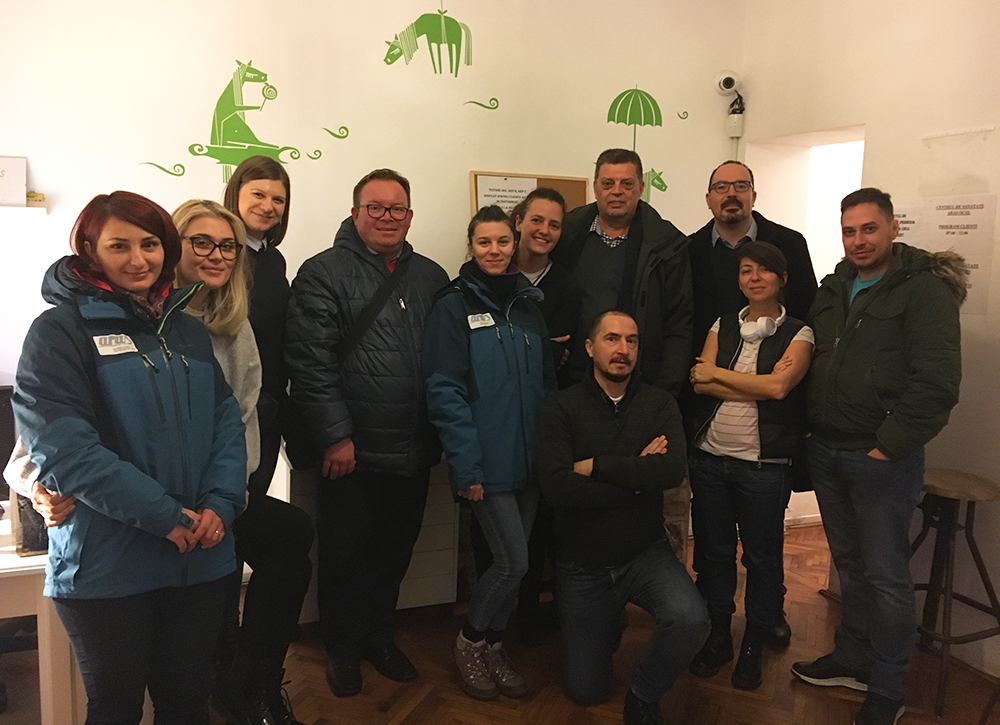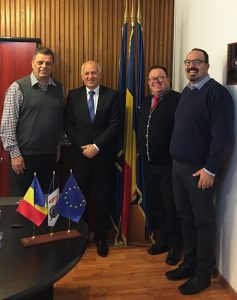Delegation of the Drug Policy Network South East Europe with Nebojša Đurasović, Vice-President, Denis Dedajić, Secretary of the Board, and Milutin Milošević, Executive Director, visited Romania on 19 November 2018. It was one of the two remaining in the serial of visits aimed to present DPNSEE to the society, build strong relationships with the authorities, institutions and services and explore opportunities for partnerships.
The situation in the country is far from good with no harm reduction services available outside Bucharest, no support for MSM services and no HIV strategy and strategic plan (a proposed document is in the Ministry of Health for one year but not approved). Opioid Substitution Therapy funding is a nightmare (procedurally), therefore hospitals do not want to engage in that, and Harm Reduction is in a survival mode. State institutions and civil society organisations have different data on key populations, with number of drug users ranging from 9.000 to 19.000.
At the meeting with Sorin Oprea, Director of the Agency for Combating Drugs, in a friendly atmosphere created through recent contacts, we discussed about the potential to raise drug policy higher on political agenda during the Romanian presidency over EU starting in January. We were informed about forthcoming purchase of 900.000 syringes for harm reduction services, the data collecting system that operates well in Romania and will be offered to Turkey, a 3 Million Euro programme that is planned for civil society organisations and plans to develop a system of alternative sanctions. Our interest in protection of personal data of drug users was replied with assurance that the problem was solved and that anonymity is guaranteed. The optimistic situation presented by the Agency was questioned by our civil society colleagues during the next meetings.
Discussion with our colleague Dragoş Roşca, director of the Romanian Harm Reduction Network, presented a bit different and challenging situation in the country. Among others, Dragoş gave us a good insight in functioning of country coordinating mechanism after departure of Global Fund. RHRN mainly functions as a watchdog for state institutions. He informed us that out of 15.500 people living with HIV, 14.000 are on treatment.
Dan Popescu from our member organisation ARAS took us to two methadone centres where they serve almost 500 people. The most vulnerable 100 of them get the service for free, while other can choose to pay 3 Euro for a daily service or 120 Euro for monthly package. We instantly commented that the country should provide the services for free – otherwise people’s basic right for health is not respected! In the centre situated in a large hospital, 11 committed activists work from 7:00 AM to 6:00 PM, supported by a doctor, nurse and social worker. This service operates for 12 years already.
We also had an opportunity to see one of two their outreach team and their van which cruises the streets of Bucharest and provides service on the spot.
The visit was really good opportunity to learn about a variety of issues related to drug policy in this complex and segmented country.






